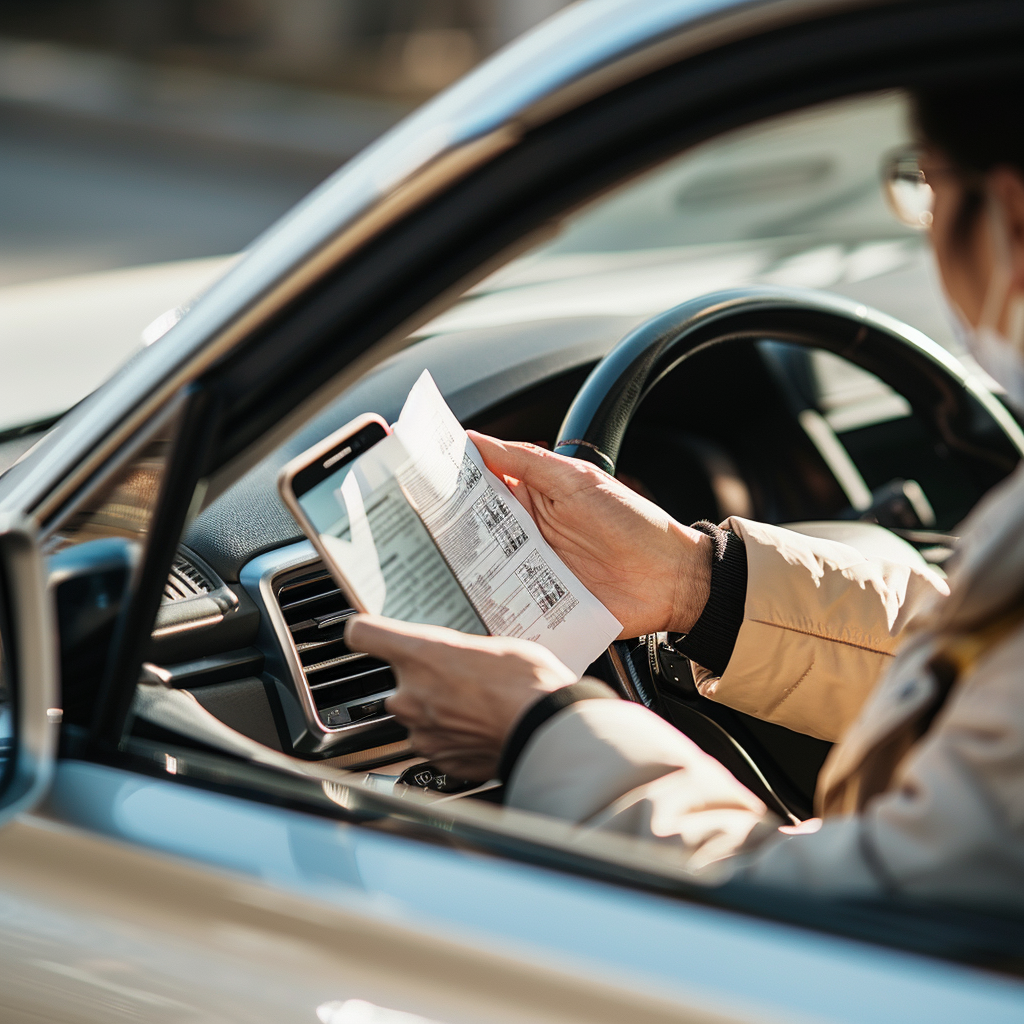1. Understand the Interstate Driver’s License Compact (IDLC)
Most states in the U.S. are part of the Interstate Driver’s License Compact (IDLC), an agreement that allows states to share information about traffic violations. This means that, in most cases, your home state will be notified of any tickets you receive out of state, and those violations can impact your driving record.
-
States that participate: Almost all states are part of the IDLC, except for Georgia, Michigan, Wisconsin, and Tennessee. If you receive a ticket in a state that’s part of the compact, your home state will likely be informed.
-
Effect on your record: Depending on your home state’s laws, the ticket could add points to your license or even result in penalties like increased insurance rates. Some states treat out-of-state tickets the same way they would treat tickets issued within the state.
2. What to Do After Receiving the Ticket
Once you receive a traffic ticket in another state, it’s important to act promptly. Ignoring the ticket can lead to bigger problems, like late fees, a suspended license, or even a warrant for your arrest.
-
Read the ticket carefully: Review the ticket for important details such as the fine amount, court date (if applicable), and how to contest the ticket. Make sure you understand the deadlines for paying the fine or responding.
-
Check if you can pay online: Many states offer online payment options, making it easier to resolve the ticket without having to travel back to the state where the ticket was issued.
-
Decide if you want to contest the ticket: If you believe the ticket was issued in error, you can choose to contest it. However, contesting the ticket may require you to appear in court in the state where the violation occurred.
3. Should You Contest the Ticket?
Deciding whether to contest a traffic ticket depends on the severity of the violation and your willingness to deal with the legal process in another state.
-
Minor violations: For minor infractions like speeding, it may be easier to pay the fine and avoid the hassle of traveling back to the state. However, if you’re concerned about points on your license or higher insurance premiums, contesting the ticket might be worth considering.
-
Serious offenses: For more serious violations (e.g., reckless driving or DUI), it’s often in your best interest to contest the ticket, especially since these offenses can have long-term consequences on your driving record and insurance rates.
-
Hire an attorney: If contesting the ticket requires a court appearance and you’re unable to travel, consider hiring a traffic attorney in the state where the ticket was issued. An attorney can represent you in court and help you navigate the local laws.
4. Paying the Fine: What You Need to Know
If you decide not to contest the ticket, paying the fine on time is crucial to avoid further complications.
-
Check payment methods: Most states allow you to pay traffic fines online, by mail, or over the phone. Be sure to follow the instructions on your ticket for the accepted payment methods and deadlines.
-
Understand the consequences of late payment: If you miss the payment deadline, you may face additional fees, license suspension, or even a bench warrant. Paying the fine promptly is the easiest way to close the case and move on.
-
Verify your payment was processed: After paying the fine, check your payment receipt and follow up with the issuing agency to ensure your payment was received and the ticket has been resolved.
5. How an Out-of-State Ticket Affects Your Driving Record
An out-of-state traffic ticket can affect your driving record, depending on the laws in your home state. Here’s what you need to know:
-
Points on your license: Some states will add points to your license for out-of-state violations. These points can lead to increased insurance premiums or even license suspension if you accumulate too many.
-
Insurance impact: Depending on your insurance provider, an out-of-state ticket may lead to higher premiums, especially if it results in points on your license.
-
Potential penalties: Serious offenses like DUIs or reckless driving may result in harsher penalties, such as license suspension, both in the state where the violation occurred and in your home state.
6. Unique Insights: Handling Tickets in Non-Compact States
If you receive a traffic ticket in a state that isn’t part of the IDLC (like Georgia or Michigan), the violation may not automatically transfer to your home state’s driving record. However, this doesn’t mean you can ignore the ticket.
-
Still responsible for fines: Even if the violation doesn’t affect your driving record, you are still responsible for paying the fine. Failure to do so can result in penalties in the state where the ticket was issued, such as a suspended license or a warrant.
-
Local penalties: If you plan to drive in the state where the ticket was issued again, unresolved tickets could lead to local penalties or even an arrest warrant.
Conclusion: Be Proactive About Out-of-State Traffic Tickets
Receiving a traffic ticket in a different state doesn’t have to be a stressful ordeal. By understanding how the Interstate Driver’s License Compact works, acting promptly, and considering whether to contest or pay the fine, you can minimize the impact on your driving record and avoid further complications.
















